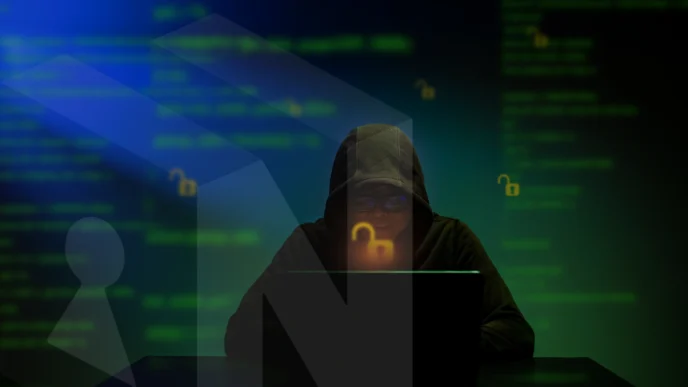Introduction: The Rising Demand for Penetration Testers in Cybersecurity
In today’s hyper-connected world, cyberattacks are not a matter of “if” but “when.” As organizations scale their digital presence, the need to identify and close security gaps has become a top priority. This is where penetration testers — also known as ethical hackers — play a critical role. By simulating real-world cyberattacks, these professionals help organizations uncover vulnerabilities before malicious actors can exploit them.
The penetration tester’s role is one of the most technically demanding and rewarding in the cybersecurity field. It combines ethical hacking, security analysis, and problem-solving, making it a popular career path for cybersecurity professionals worldwide.
Job Description and Core Responsibilities
A penetration tester (pentester) is responsible for evaluating the security of an organization’s digital infrastructure by identifying and exploiting vulnerabilities in systems, networks, and applications — under legal and ethical constraints. They provide actionable insights that help companies bolster their defenses.
Common responsibilities include:
- Conducting penetration tests on networks, web applications, mobile platforms, and APIs
- Identifying and exploiting vulnerabilities in security configurations, code, or system design
- Preparing detailed reports with findings, risk assessments, and remediation recommendations
- Collaborating with IT, DevOps, and security teams to mitigate vulnerabilities
- Performing red team exercises and adversary emulation
- Staying current with the latest exploits, attack vectors, and hacking tools
Education Requirements
While it is possible to become a pentester through non-traditional paths, most employers expect candidates to have formal education in cybersecurity or a related field.
Typical degrees include:
- Bachelor’s in Cybersecurity
- Bachelor’s in Computer Science or Information Technology
- Master’s in Information Security (optional but beneficial)
- Associate’s degrees or bootcamps (for junior roles or career transitions)
Key Certifications for Penetration Testers
| Certification | Issuer | Difficulty | Renewal Requirement |
|---|---|---|---|
| CEH (Certified Ethical Hacker) | EC-Council | Moderate | Every 3 years (120 CPEs) |
| OSCP (Offensive Security Certified Professional) | Offensive Security | High | None, but encouraged to stay current |
| GPEN (GIAC Penetration Tester) | GIAC (SANS) | High | Every 4 years (36 CPEs) |
| eJPT (Junior Penetration Tester) | INE/Offensive Security | Entry | None |
| CompTIA PenTest+ | CompTIA | Moderate | Every 3 years (60 CPEs) |
| CRTP (Certified Red Team Professional) | Pentester Academy | High | None |
Key Skills for Penetration Testers
Technical Skills:
- Proficiency in programming/scripting languages (Python, Bash, PowerShell)
- Knowledge of networking protocols (TCP/IP, DNS, HTTP, etc.)
- Familiarity with OS internals (Windows, Linux)
- Experience with tools like Metasploit, Burp Suite, Nmap, Wireshark, Nessus, and Kali Linux
- Web application security (OWASP Top 10)
- Understanding of Active Directory exploitation and privilege escalation techniques
Interpersonal Skills:
- Analytical thinking and problem-solving
- Attention to detail
- Clear written and verbal communication (especially for reporting)
- Ethical judgment and professional integrity
- Ability to work independently and in team environments
Salary Guide for Penetration Testers (2025)
| Country | Entry-Level (0–2 yrs) | Mid-Level (3–5 yrs) | Senior-Level (6+ yrs) |
|---|---|---|---|
| USA | $75,000 – $95,000 | $100,000 – $130,000 | $135,000 – $170,000 |
| UK | £40,000 – £55,000 | £60,000 – £80,000 | £85,000 – £110,000 |
| Switzerland | CHF 80,000 – CHF 100,000 | CHF 110,000 – CHF 130,000 | CHF 135,000 – CHF 160,000 |
| France | €38,000 – €50,000 | €55,000 – €70,000 | €75,000 – €95,000 |
| Australia | AUD 80,000 – AUD 100,000 | AUD 110,000 – AUD 135,000 | AUD 140,000 – AUD 170,000 |
Note: Salaries vary based on location, certifications, company size, and specialization.
Job Market Outlook and Demand
The demand for penetration testers continues to rise globally due to increased cyber threats and stricter data privacy regulations (e.g., GDPR, HIPAA, ISO 27001). According to a 2024 ISC² Cybersecurity Workforce Study:
- There is a global cybersecurity talent gap of over 4 million professionals
- Penetration testing ranks among the top 5 most sought-after specialized skills
- Organizations are increasingly investing in internal red teams and third-party pentest engagements
- Cloud and application security pentesting skills are especially in high demand
Additionally, freelance and contract-based penetration testing opportunities are growing, offering flexibility for professionals with the right credentials and experience.














